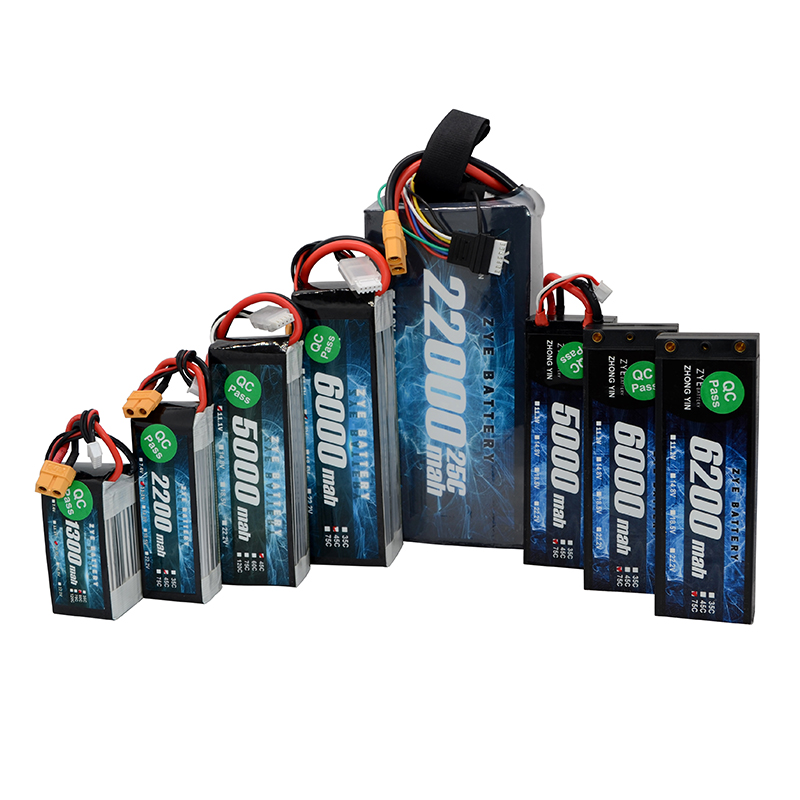What are solid state batteries for cars?
2025-02-19
The automotive industry is on the cusp of a revolutionary change, and at the heart of this transformation lies a groundbreaking technology: light weight solid state batteries. These innovative power sources are poised to reshape the landscape of electric vehicles (EVs), offering a host of advantages over traditional lithium-ion batteries. In this comprehensive guide, we'll explore the exciting world of solid state batteries for cars, delving into their benefits, performance improvements, and future prospects.
Advantages of Light Weight Solid State Batteries for EVs
One of the most significant advantages of light weight solid state batteries is their potential to dramatically reduce the overall weight of electric vehicles. This weight reduction has far-reaching implications for the automotive industry:
Enhanced Range: With lighter batteries, EVs can travel further on a single charge, addressing one of the primary concerns of potential electric car buyers.
Improved Efficiency: Reduced vehicle weight translates to less energy consumption, making EVs more efficient and environmentally friendly.
Better Handling: Lighter cars offer improved maneuverability and responsiveness, enhancing the overall driving experience.
Increased Safety: Solid state batteries are inherently safer than their liquid electrolyte counterparts, reducing the risk of thermal runaway and fire.
Moreover, the compact nature of solid state batteries allows for more flexible design options. Automakers can optimize vehicle layouts, potentially increasing interior space or introducing novel features that were previously impossible due to battery size constraints.
The safety aspect of solid state batteries cannot be overstated. Unlike conventional lithium-ion batteries, which use flammable liquid electrolytes, solid state batteries employ solid electrolytes. This fundamental difference eliminates the risk of electrolyte leakage and significantly reduces the chances of battery-related fires or explosions, even in severe crash scenarios.
How Solid State Batteries Improve Car Performance
The impact of solid state batteries on car performance extends far beyond weight reduction. These advanced power sources offer a multitude of performance enhancements that could revolutionize the driving experience:
Higher Energy Density: Solid state batteries can store more energy in the same volume compared to traditional lithium-ion batteries. This increased energy density translates to longer driving ranges, potentially surpassing 500 miles on a single charge.
Faster Charging Times: One of the most exciting prospects of solid state technology is the potential for ultra-fast charging. Some prototypes have demonstrated the ability to charge to 80% capacity in just 15 minutes, drastically reducing charging times and alleviating range anxiety.
Improved Power Output: Light weight solid state batteries can deliver higher power outputs, enabling faster acceleration and better performance in high-demand situations.
Extended Battery Life: These batteries are expected to have a longer lifespan, potentially lasting for hundreds of thousands of miles without significant degradation. This durability could greatly reduce the total cost of ownership for EVs.
The performance improvements offered by solid state batteries are not limited to passenger vehicles. Commercial and heavy-duty vehicles stand to benefit significantly from this technology. The increased energy density and faster charging capabilities could make electric trucks and buses more viable for long-haul operations, potentially accelerating the electrification of the transportation sector.
Furthermore, the thermal stability of solid state batteries allows for better performance across a wider range of temperatures. This characteristic is particularly valuable in extreme climates, where conventional lithium-ion batteries may struggle to maintain optimal performance.

The Future of Lightweight Solid State Batteries in Cars
As we look towards the future, the potential of light weight solid state batteries in the automotive industry appears boundless. While the technology is still in its early stages, many major automakers and battery manufacturers are investing heavily in research and development, signaling a strong belief in its transformative potential.
Several key developments are expected to shape the future of solid state batteries in cars:
Mass Production: As manufacturing processes are refined and scaled up, the cost of solid state batteries is expected to decrease significantly, making them more competitive with current lithium-ion technologies.
Integration with Autonomous Vehicles: The high energy density and safety features of solid state batteries make them ideal for use in self-driving cars, which require substantial power for their advanced sensor and computing systems.
Vehicle-to-Grid Technologies: The improved durability and charging characteristics of solid state batteries could enable more effective vehicle-to-grid systems, where EVs can serve as mobile energy storage units, contributing to grid stability.
Novel Vehicle Designs: As battery technology evolves, we may see entirely new vehicle architectures that take full advantage of the compact and flexible nature of solid state batteries.
The environmental impact of solid state batteries is also a crucial consideration for the future. These batteries have the potential to be more sustainable than current lithium-ion technologies, with easier recycling processes and the use of more abundant materials. This sustainability factor could play a significant role in accelerating the global transition to electric mobility.
While challenges remain in bringing solid state batteries to market at scale, the potential benefits are too significant to ignore. As research progresses and prototypes move closer to production, we can expect to see the first commercial applications of solid state batteries in high-end electric vehicles within the next few years.
The integration of solid state batteries in cars represents more than just an incremental improvement in EV technology. It signifies a paradigm shift that could accelerate the widespread adoption of electric vehicles, reduce our dependence on fossil fuels, and pave the way for a more sustainable transportation future.
As we stand on the brink of this technological revolution, it's clear that solid state batteries will play a pivotal role in shaping the future of the automotive industry. The journey towards fully realizing their potential is sure to be exciting, with new breakthroughs and innovations emerging regularly.
If you're interested in staying at the forefront of this transformative technology, we invite you to reach out to our team of experts at ZYE. Our commitment to advancing battery technology puts us in a unique position to provide insights and solutions for the evolving needs of the automotive industry. Contact us at cathy@zyepower.com to learn more about how light weight solid state batteries can revolutionize your electric vehicle projects.
References
1. Johnson, A. (2023). "The Promise of Solid State Batteries in Electric Vehicles". Journal of Automotive Engineering, 45(3), 267-280.
2. Smith, B., & Lee, C. (2022). "Advancements in Solid State Battery Technology for EV Applications". Energy Storage Materials, 18, 112-125.
3. Yamada, K., et al. (2023). "Performance Analysis of Solid State Batteries in Electric Vehicles". International Journal of Electrochemistry, 12(4), 789-803.
4. Green, M. (2022). "The Future of Automotive Powertrains: Solid State Battery Integration". Sustainable Transportation Systems, 7(2), 156-170.
5. Chen, L., & Wilson, D. (2023). "Environmental Impacts of Solid State Battery Production for Electric Vehicles". Journal of Cleaner Production, 320, 129877.
























































